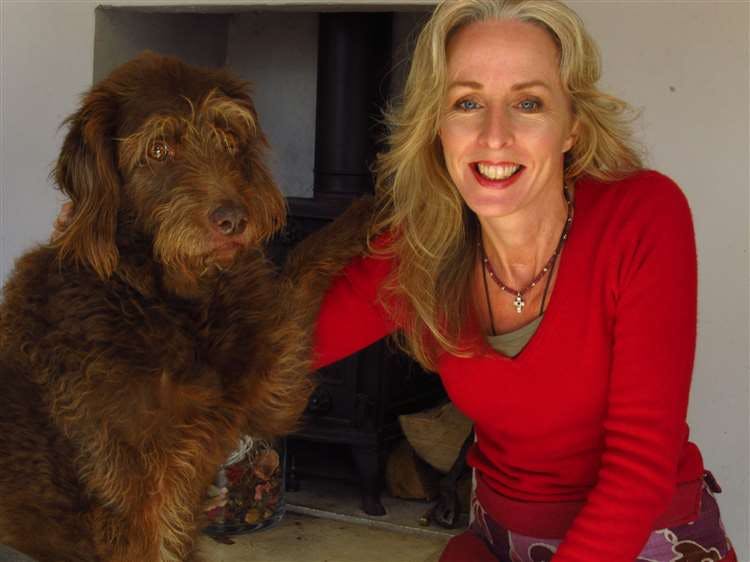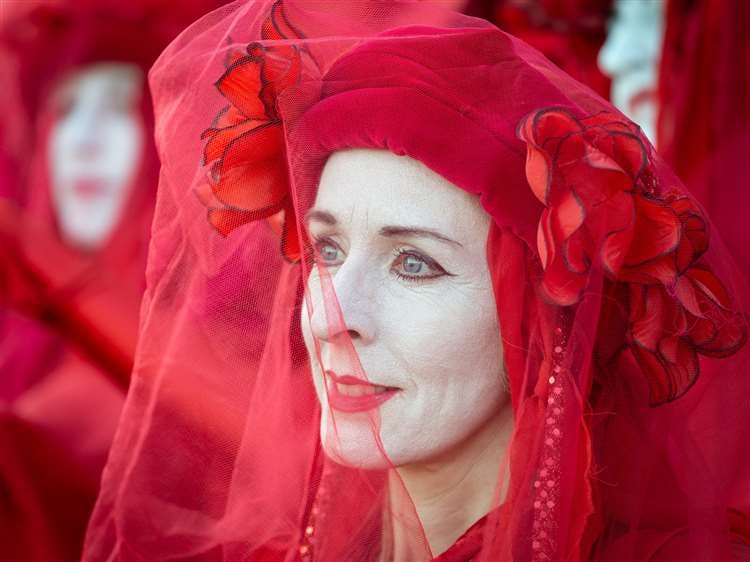Last month ago we buried our dog, Maisie. She had tumours and was suffering so, together with my three sons, we decided to put an end to her pain. We couldn’t get hold of the vet and I wondered if they were not working during the pandemic, so I suggested that I might have to do it myself.

Thankfully the veterinary surgery was open on Tuesday, and we all held her as she died, baptising her with our tears. We buried her, carrying her body up the garden in her basket, covered in herbs and flowers. We all put something in the grave and drummed and sang to her. It was a more beautiful and natural end-of-life ceremony than many others I have been to. We stood at the graveside and cried freely as we took turns to fill the hole.
It’s a tragedy that we have institutionalised dying and put it into the hands of other people, instead of honouring our dead by staying near them, writing letters, making bundles and artworks to put in the grave. These acts help the emotions pass through us and soften our loss.

I can only imagine the trauma of those who are separated from their loved ones who die of coronavirus in hospital. It is one of the greatest tragedies of this pandemic, and will surely lead to some changes when this is over.
It might seem counter-intuitive to believe that grief can be healing, but if we refuse to grieve, it will leak out in other ways that can make us bitter or hurt those around us. Have you ever noticed that sometimes, people will break down at a funeral of a person they hardly know? This is a common phenomenon and can be evidence that the person is experiencing a different loss that they have not grieved.

When I considered what to do with my dog, I was remembering a scene from a film I had seen where a traumatised soldier, returning from war, stumbled upon the home of an elderly woman who kept goats. She sacrificed one of her goats to feed him. It looked very gentle on the screen, but we all know that real life is not like the movies. No matter how brilliant the actor, it is impossible to portray true grief in a film because one of the most painful things about grief is its loneliness. The very act of watching means that the sufferer is not alone. Grief needs witnesses. The griever has a heart full of love, but the object of their love is not there and it is often exacerbated by regret. They need a witness to their loss and their love, and they need a space where they can speak. Grief stalks us, often catching us unaware and leaves us gulping the quenching darkness in the small hours of the morning, or bursting into tears at the sight of something that reminds us of our loss.
Grief is a deeply subversive act. The corporate industrial society does not want us to feel any of our pain. It would rather we numb it by selling us pharmaceutical drugs, retail therapy, a package holiday or a new outfit, all of which rely on us to keep working, without stopping to take the time to reorientate ourselves, to suffer generously, wisely and calmly.
Grief is a wild act, full of powerful emotions that seem, like the elements, to have life of its own. Some days are calm and some days are stormy, with great gusts that knock us to the ground. There is an old idea that says emotions are influxes from the divine. We have to let them pass through us in order to grow as human beings.
Our global community is being united in grief and loss. We know there will be many stories to hear in the coming months of how this pandemic has affected lives and taken many people. We have been learning to grieve the Earth and the loss of many species, and while we are in lockdown it can feel like the climate crisis has receded into the background but, even more threatening than the pandemic, climate change is ongoing.
Grieving is the first step in coming to terms with loss and until we allow the emotions to pass through us we will be stuck in a media-generated frenzy of outrage, condemnation and blame. Grieving is a natural and human emotion, and we should fear the results of not embracing it, rather than the healing that comes from true, nourishing grief itself.
Note
This article by our rebel Linda first appeared in the Cambridge Independent; it can be found here.
